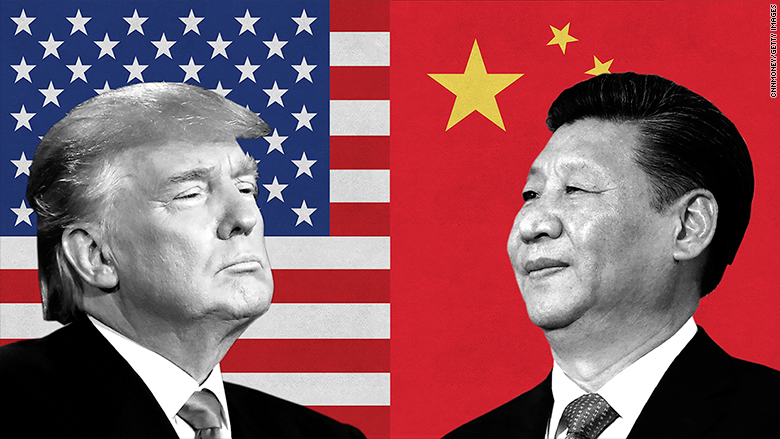What’s The Deal With China?
May 21, 2018
Why do the United States’ and China’s economic interactions matter?
Recently, President Trump, under Section 232 of the Trade Expansion Act of 1962, directed the U.S. Department of Commerce to issue a tariff on steel and aluminum. In the case of this tariff, countries that conduct trade with the U.S. – excluding Canada and Mexico – will be subject to a 25% tariff on aluminum and a 10% tariff on steel.
A tariff is essentially a tax on goods that are coming into our country, meaning that countries like China, a major exporter of aluminum and steel to the U.S., would have to pay on a tax on the aluminum and steel they export to the United States. The purpose of a tariff is to drive up the prices of foreign goods coming into the country so that there will be more of an incentive to purchase American goods, a common strategy of fiscal Conservatives throughout history.
In the recent election, one of the more prominent promises President Trump made was to improve the industry in our country by encouraging the purchase of domestic goods. For Trump, issuing a tariff may seem like a good way to respond to the alleged trade deficit with China.
What do the consumers of the middle class and the blue collar workers, the same people who voted for Trump, get out of this? “In the short-term, prices will be significantly higher, but may equal out in the near future,” an individual from the USDA (wishing to remain unknown) stated as they shared their personal opinions. For instance, steel prices may rise in the short-term but will most likely settle back to their original value. For China, this is not an ideal situation, and has elicited a direct response that may not be favorable to the United States.
What are the Implications of China’s response?
In a recent meeting with Japanese Prime Minister Abe, Trump mentioned that he appreciated that the U.S. trade relationship is and will continue to be “free, fair and reciprocal.” However, after information about the trade deficit with China reaching approximately $375 billion, the trade between China and the United States has not seemed to be “free, fair, and reciprocal” for some time.
While China may have responded in a reciprocal way, it is most likely not the type of reaction Trump wanted. “It has been alleged, and is most likely the case, that China will respond to a tariff on soybeans from the US,” an individual from the USDA stated. Also, according to this same source, there have been instances of cancelled shipments of US pork and tree nuts, an act that is considered not so beneficial to the relations of the two countries.
In addition, this may be detrimental to the farmers of America, a group President Trump promised he would do justice. As a result of these cancelled shipments, the US had to stabilize the prices of the respective goods, spending tens of billions of dollars, as an individual from the USDA expressed. This only increases our trade deficit with China. Talking about trade that is what Trump calls “free, fair, and reciprocal,” it is evident that China may not have the same motives as the United States does when it comes to trade.
What does this mean for the future of the United States and our relations with China?
Many have thrown the term “trade-war” around and proclaimed that the end to U.S. and Chinese economic relations has come. The truth is that it is hard to calculate the exact result of the back-and-forth between China and the United States. As President Trump has asked for broad reform, the actions that both sides could take are unclear.
Possible solutions could include a joint-venture between the U.S. and China where China would be the majority and would have to pay a specific percent on goods. However, as an individual from USDA stated, “China had always done whatever they could to get Intellectual Property, like using unfair state-sponsored hacking.” Even if there was a joint-venture between the U.S. and China, the proportion of the role that each side takes in investment would have to be similar while still maintaining the economic sanctions, a concept China would be reluctant to accept. While we can’t predict what will happen, the only thing we know for sure is that the tariffs will go into effect this summer. It is important to consider and analyze the situation before brashly labelling it as a “trade war.”








Min Woo Rhee • Jun 1, 2018 at 8:48 pm
Thank you very much for such an informative article
It seems like the economy can be a very powerful weapon in modern capitalism society
Koreans used to know little about economy in the 90’s and we suffered heavy loses in trade war to both America and China
I want to learn more about the economy that I can protect my properties in the future
Breezy • May 21, 2018 at 3:28 pm
Free trade is the way to go. Low cost is always the incentive for businesses.
Alan M. Burd • May 21, 2018 at 8:53 pm
Along with low cost, protection of Intellectual Property is also an incentive for businesses.